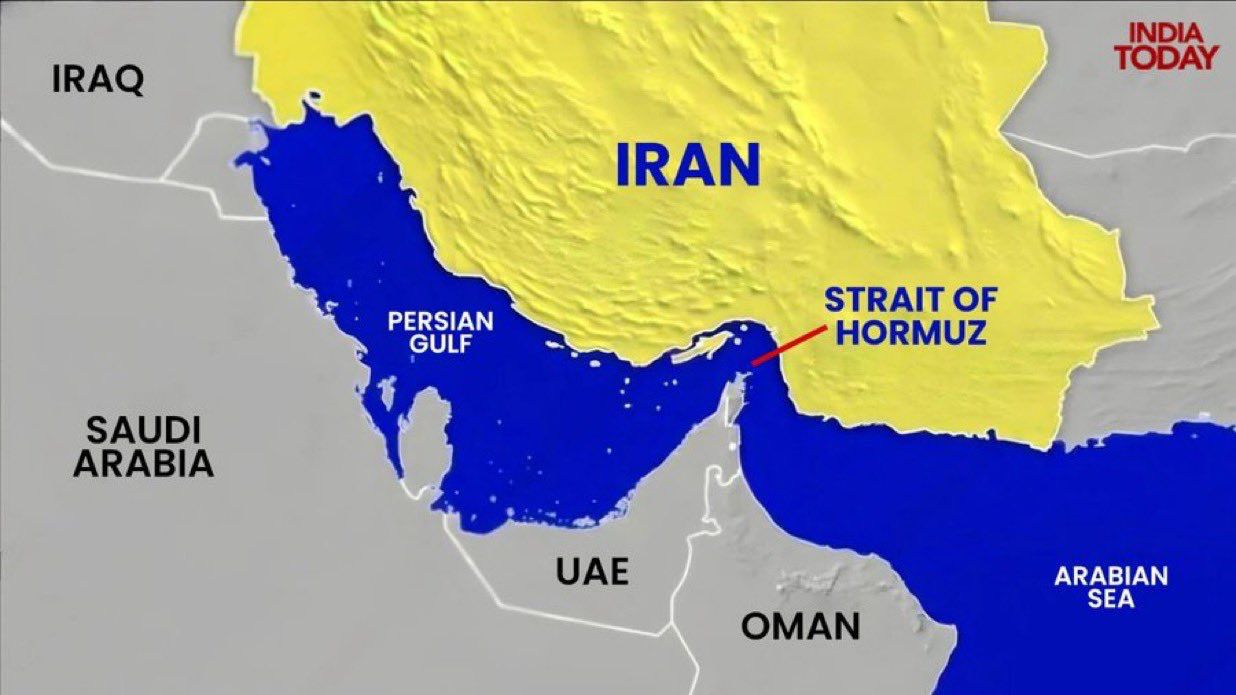
Iran’s parliament has endorsed closing the Strait of Hormuz, a vital oil transit point off its coast, but analysts are skeptical about the threat from a body without authority to close the strait.
Why it matters: Impeding the strait would likely bring a massive spike in oil prices that would flow through to U.S. consumers.
- The narrow channel between Iran and Oman is the chokepoint for a quarter of the world’s seaborne oil trade — and around one-fifth of all oil movements.
- Without diplomatic concessions from Tehran, the front-month Brent crude oil price could open “meaningfully above its $77.01/bbl Friday close,” ClearView Energy Partners said in a Sunday note.
Catch up quick: The threat is among the initial responses to yesterday’s U.S. strikes on Iran’s nuclear sites.
- Trying to block the strait would be the first time that the Israel-Iran conflict meaningfully affects global oil flows.
- Authority to do so rests with regime security officials and not parliament.
Yes, but: Iranian efforts to close the strait and attack energy infrastructure in the Persian Gulf are “unlikely,” Eurasia Group analysts said in a note earlier Sunday morning.
- “The US has amassed a massive military presence in the Gulf and surrounding region, and a move by Iran against the strait would almost certainly trigger a significant military response,” they write.
- Eurasia said Iran is unlikely to hit strike targets while its own exports remain intact, but added: “Increased Iranian harassment of tanker traffic is likely in coming days.”
- Eurasia senior analyst Gregory Brew told Axios in an email that “a move to close Hormuz would be an effective declaration of war against the Gulf states and the US” and that “Iran in its weakened state is unlikely to seek escalation of that kind at this time.”
Average volume of petroleum transported through the Strait of Hormuz
Barrels per day of crude oil, condensate and petroleum products; Annually, 2020–2025 (as of Q1 2025)
Total world maritime oil trade Strait of Hormuz
A column chart showing average daily barrels of petroleum transported through the Strait of Hormuz and worldwide from 2020 to 2025, as of Q1 2025. On average, the world maritime oil trade transported a total of 74.2 million barrels per day. About 20.3 million barrels per day, or a third of global volume, was transported through the Strait of Hormuz alone.020m40m60m80m202020212022202320242025
Q1 2025Data: U.S. Energy Information Administration; Chart: Kavya Beheraj/Axios
Driving the news: Vice President JD Vance said Sunday that closing the channel would be economically “suicidal” for the Iranians.
- “Their entire economy runs through the Strait of Hormuz. If they want to destroy their own economy and cause disruptions in the world, I think that would be their decision,” he told NBC’s “Meet the Press.”
What we’re watching: Traders’ moves when markets open tonight will be a quick sign of how seriously the market hive-mind is taking the threat.





